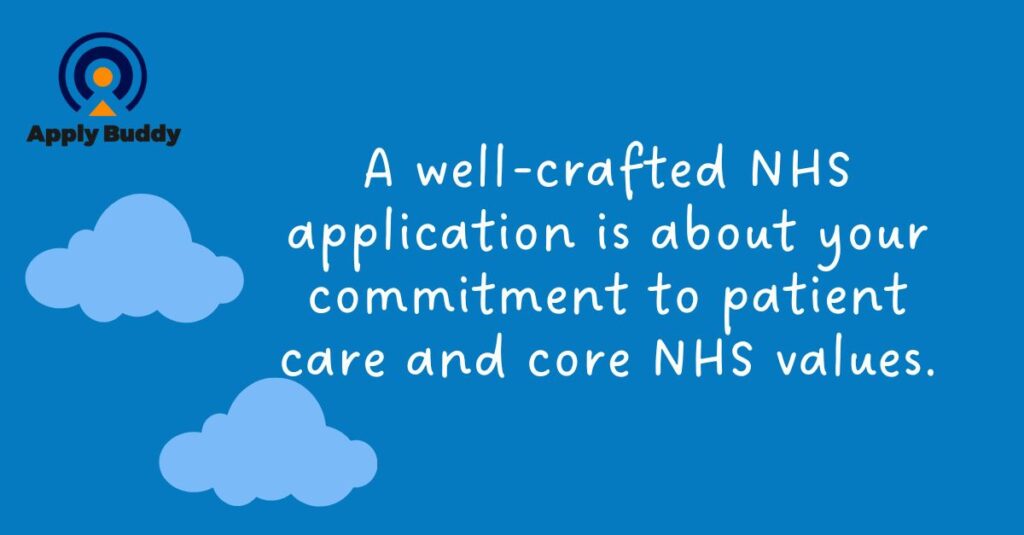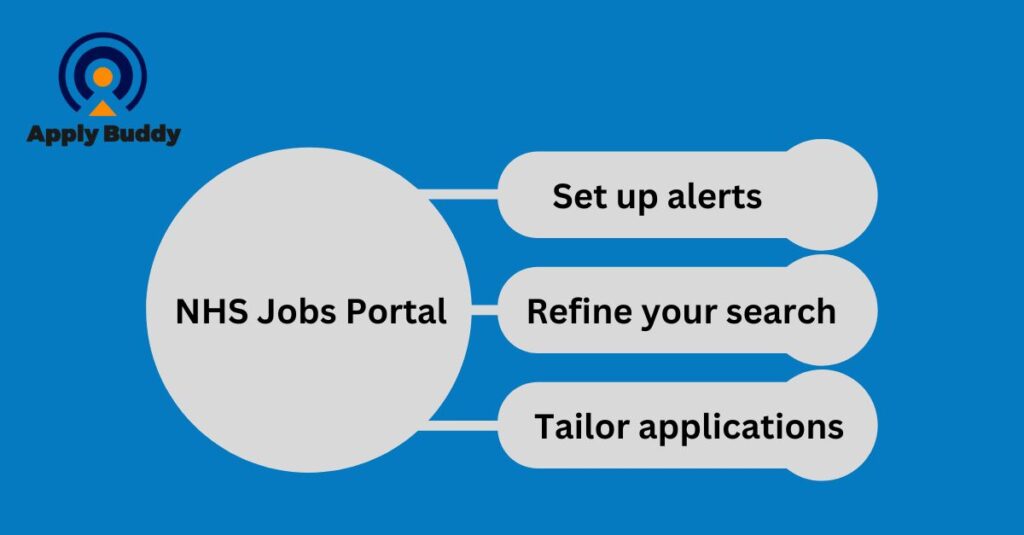Wondering how to apply for jobs in the NHS? You’re in the right place!
The NHS is one of the largest employers in the UK, offering diverse roles in healthcare, administration, and support services.
But how do you successfully apply for NHS jobs?
Understanding the process is key.
This guide walks you through every step—from navigating NHS job portals to crafting a standout application. Whether you’re a first-time applicant or transitioning from another sector, we’ll cover everything you need to know to increase your chances of landing your ideal NHS role.
Ready to begin? Let’s dive into the details and set you on the right path to securing your NHS career.
Understanding the NHS Recruitment Process
The NHS remains the largest employer in England, with around 1.5 million employees. Applying for a job in the NHS involves a structured and competitive process. Unlike private-sector recruitment, NHS hiring follows a standardised approach to ensure fairness and transparency.
You’ll need to familiarise yourself with NHS job portals, understand role requirements, and meet specific selection criteria. The key to success? A strong application that aligns with NHS values and demonstrates your suitability.
This section will guide you through NHS job categories, explain how recruitment differs from private organisations, and show you how to navigate the NHS Jobs website efficiently.
By mastering these elements, you’ll position yourself as a strong candidate in the competitive NHS hiring landscape.
Read also:
Overview of NHS Job Roles and Categories
The National Health Service (NHS) offers various career opportunities, catering to diverse professional backgrounds. But where should you start? Understanding NHS job categories is crucial for finding the right fit.
First, let’s talk about clinical roles. These include doctors, nurses, midwives, and allied health professionals such as physiotherapists and radiographers. These positions focus on direct patient care and medical treatment.
Then, there are non-clinical roles. The NHS relies on IT specialists, finance professionals, HR teams, and administrative staff to ensure smooth operations.
Are you looking for a role in public health or research? The NHS also offers epidemiology, social care, and policy development positions.
By identifying the right category, you can tailor your application and increase your chances of securing a fulfilling NHS career.
Let’s dive in!
How NHS Recruitment Differs from the Private Sector
Applying for a job in the NHS vastly differs from private sector recruitment.
Why? Let’s break it down.
Unlike private companies, where hiring decisions may be influenced by networking, internal referrals, or direct applications, NHS recruitment is merit-based and follows a structured, competency-driven selection process.
Every role is advertised through official NHS job portals, ensuring fairness, transparency, and equal opportunity. But there’s more—NHS hiring incorporates values-based recruitment (VBR) to assess a candidate’s alignment with the NHS Constitution and core principles of patient care, integrity, and professionalism.
This means that beyond technical qualifications, your commitment to public service matters. The NHS is set apart by rigorous compliance checks, including DBS clearances, occupational health screenings, and structured panel interviews.
Bottom line? NHS recruitment ensures that only the most dedicated professionals become part of the healthcare workforce.
Navigating the NHS Jobs Website and Portals
The NHS Jobs website is the primary platform for finding vacancies within the NHS. With over 50 million monthly visits, the NHS website allows candidates to search for roles by location, profession, and employer. First, applicants must create an account, upload their CV, and complete an online profile.
Each job listing provides detailed information, including essential qualifications, responsibilities, and person specifications. It is crucial to read the job descriptions carefully and tailor applications accordingly.
Additionally, NHS Trusts may have their recruitment portals, which should be explored for further opportunities. Using the NHS Jobs site effectively will significantly improve your interview chances.

Preparing Your Application Materials
A well-crafted application is essential to standing out in the NHS recruitment process. Your CV should be tailored to highlight the skills and qualifications relevant to healthcare roles, while your cover letter must showcase your alignment with NHS values.
It’s not just about listing experiences—it’s about demonstrating that your background makes you the perfect fit for the role. This section will discuss optimising your CV, crafting a compelling cover letter, and highlighting key skills that NHS hiring managers seek.
Let’s ensure your application materials make a lasting impression.
Read also:
- How to Craft a Compelling Cover Letter That Shows Your Passion
- How to Reduce Employee Burnout and Improve Job Satisfaction
Tailoring Your CV for NHS Roles
A well-structured CV tailored to NHS roles can significantly impact your application’s success. Follow these key steps:
- Start with a strong personal statement: Highlight your commitment to healthcare and NHS values. Keep it concise and impactful.
- Use clear section headings: Your CV should be easy to navigate and organised into Experience, Skills, and Education categories.
- Focus on relevant experience: Emphasise roles that demonstrate your suitability for NHS positions, including responsibilities and achievements.
- Incorporate key skills: Highlight patient care, teamwork, and problem-solving competencies that align with NHS expectations.
- Include relevant certifications and training: List professional qualifications, NHS-specific courses, and regulatory requirements, such as DBS clearance.
- Use measurable achievements: Showcase how you’ve made an impact in previous roles with quantifiable results.
- Keep it concise and well-formatted: Stick to two pages, use bullet points, and avoid unnecessary jargon.
- Ensure accuracy and consistency: Double-check dates, job titles, and spelling to maintain a professional impression.
A strong NHS-focused CV highlights your qualifications and reflects your dedication to patient-centred care and the NHS mission.
Writing a Compelling Cover Letter Aligned with NHS Values
A strong cover letter can set you apart from other applicants. Aligning your cover letter with the core values outlined in the NHS Constitution is essential when applying for NHS jobs. This report shows that including a cover letter with your resume makes you 1.9 times more likely to be invited for an interview.
Start by addressing the hiring manager and expressing your enthusiasm for the role, if possible. Clearly explain how your skills and experience meet the job’s requirements while demonstrating an understanding of NHS priorities such as patient care, teamwork, and continuous improvement.
Provide specific examples of how you have embodied these values in previous roles. Finally, keep your cover letter concise, structured, and professional to make a lasting impression.
Highlighting Relevant Skills and Experience for Healthcare Settings
Demonstrating the right skills and experience is crucial when applying for NHS jobs. Whether you are applying for a clinical or non-clinical role, your application should emphasise competencies relevant to healthcare settings.
Key skills include communication, teamwork, problem-solving, and adaptability. If you have previous NHS experience, highlight your knowledge of NHS procedures, policies, and patient-centred care.
For those transitioning from other sectors, focus on transferable skills such as customer service, administration, or data analysis that align with NHS requirements.
Providing concrete examples of how your experience applies to healthcare will strengthen your application.

Struggling with your NHS job application?
Apply Buddy makes it easy!
Our expert service helps you streamline your NHS applications, craft standout CVs and compelling cover letters, and ace interviews.
Get tailored guidance to boost your success.
Don’t miss out—start your journey to an NHS career today! 🚀
Application Strategies for NHS Careers
Applying for a job in the NHS requires a structured approach to maximise success. With thousands of roles available, understanding how to position yourself effectively is crucial. NHS careers span clinical and non-clinical fields, each requiring a specific application strategy.
Candidates should tailor their applications to align with NHS competencies and values. Applicants can enhance their chances of securing a role by utilising the right job search platforms, professional networks, and time management skills.
Read also:
How to Search for and Apply to NHS Jobs Effectively
Landing a job with the NHS requires careful planning and attention to detail. Here’s a comprehensive guide to get you started.
- Start with the NHS Jobs website: This is the official platform where most NHS vacancies are posted, offering a wide range of job opportunities.
- Use advanced search filters: Narrow down job listings by location, job role, salary band, specialty, and contract type to find the most relevant opportunities that match your criteria.
- Set up job alerts: Enable notifications to receive updates on new vacancies that match your preferences, ensuring you never miss out on potential job opportunities.
- Carefully read job descriptions: Pay close attention to essential qualifications, responsibilities, and key competencies required for the role to determine if you’re a good fit.
- Customise your CV and cover letter: Tailor each application to highlight skills and experience that align with NHS job expectations, making your application stand out.
- Follow all application instructions: Complete every section and attach supporting documents as required to avoid delays or rejections.
- Stay organised: Track application deadlines, interview dates, and follow-ups to manage multiple applications efficiently and stay on top of your job search.
Utilising Professional Networks and NHS Alumni Groups
Professional networks and NHS alumni groups can be valuable resources when searching for job opportunities, as 85% of all jobs are filled via networking. Engage with LinkedIn groups dedicated to NHS careers and healthcare professionals.
Attend NHS career fairs, webinars, and networking events to connect with recruiters and experienced professionals. Joining NHS alumni groups allows you to gain insider insights and mentorship opportunities.
Reach out to former NHS employees or colleagues for referrals and job leads. Actively participating in discussions and professional organisations enhances your visibility within the NHS community, increasing your chances of finding the right role.
Tips for Managing Multiple Applications and Deadlines
Applying for multiple NHS roles requires effective organisation and time management. Create a job application tracker to monitor deadlines, submission dates, and application statuses. Prioritise applications based on deadlines and job suitability.
Dedicate specific time slots to research, application preparation, and follow-ups. Customise each application while maintaining consistency in core information. Avoid rushing submissions—proofread documents carefully to prevent errors.
Keep a copy of submitted applications for reference during interviews. Staying organised and disciplined helps streamline the job search process and increases the likelihood of securing a position.

Acing the NHS Interview Process
The NHS interview process is designed to assess candidates’ skills, competencies, and alignment with NHS values. Preparation is key to performing well and securing a role. Candidates should research the organisation, anticipate common interview questions, and practice structured responses.
Committing to patient care, teamwork, and ethical standards is essential. Effective follow-up strategies can further enhance interview success. Understanding the NHS interview framework and preparing accordingly will increase confidence and improve performance.
Read also:
Common Interview Questions for NHS Roles
NHS interviews use competency-based and scenario-based questions to evaluate your suitability. Below are examples of common questions with model answers and explanations.
“Can you describe a time when you worked as part of a team to achieve a goal?”
Example Response: “In my previous role, our team had to implement a new patient record system under tight deadlines.
I collaborated with colleagues to divide tasks efficiently, ensuring smooth data migration. By maintaining clear communication and supporting team members, we completed the project on time, improving efficiency.”
Why It Works: This answer highlights teamwork, problem-solving, and communication—key NHS competencies.
“How would you handle a difficult patient or colleague?”
Example Response: “Once, a patient was frustrated due to a long wait time. I listened attentively, acknowledged their concerns, and calmly explained the situation. Offering reassurance and regular updates helped de-escalate the situation.”
Why It Works: This demonstrates emotional intelligence, conflict resolution, and patient-centred care—essential NHS values.
“Give an example of when you had to make a quick decision under pressure.”
Example Response: “During a shift, a patient suddenly became unresponsive. I quickly assessed the situation, alerted the medical team, and followed emergency protocols. This ensured prompt intervention and a positive outcome.”
Why It Works: This response showcases critical thinking, composure, and adherence to NHS procedures.
“How do you ensure patient confidentiality?”
Example Response: “I always follow NHS guidelines on data protection, ensuring sensitive information is only shared with authorised personnel. In one instance, I reminded a colleague to discuss patient details privately to maintain confidentiality.”
Why It Works: This reflects knowledge of NHS policies, professionalism, and ethical responsibility.
The STAR method—Situation, Task, Action, and Result—ensures structured, impactful answers.
Demonstrating Commitment to Public Service and Patient Care
The NHS prioritises candidates who firmly commit to public service and patient care. Showcase your understanding of NHS core values, such as compassion, respect, and integrity.
Provide examples of previous experiences where you contributed to patient well-being or improved healthcare outcomes. Highlight your ability to work collaboratively in multidisciplinary teams.
Emphasise problem-solving skills, adaptability, and dedication to continuous learning. Align your responses with the NHS Constitution to demonstrate a genuine passion for delivering high-quality healthcare services.
Post-Interview Follow-Up and Feedback Strategies
Following up after an NHS interview is a professional way to reinforce your interest in the role. Within 24 hours, send a concise thank-you email expressing appreciation for the opportunity and reiterating your enthusiasm for the position.
Reflect on the interview to identify areas for improvement. If unsuccessful, request constructive feedback to enhance future applications. Maintain a positive and professional attitude, as feedback can provide valuable insights for career development. Staying proactive and engaged post-interview can leave a lasting impression on recruiters and hiring managers.
FAQs: How to Apply for Jobs in the NHS
How do I create an NHS-focused CV that stands out?
To craft an NHS-focused CV, highlight healthcare-related experience, key competencies, and alignment with NHS values. Use a clear structure with sections for personal statement, skills, and achievements. Quantify your impact in previous roles and include relevant certifications. Keep it concise, professional, and tailored to the job description.
What are the key differences between NHS and private sector job applications?
NHS job applications follow a structured, merit-based process emphasising transparency and fairness. Unlike private-sector hiring, NHS recruitment prioritises competency-based selection, values-based assessment, and strict regulatory compliance. Additionally, NHS hiring often involves panel interviews and detailed application forms.
Which NHS recruitment portals are most effective for job seekers?
The NHS Jobs website is the primary platform for NHS vacancies, allowing users to search, set job alerts, and track applications. Trac Jobs is another widely used portal, particularly for NHS Trusts. HealthJobsUK lists various healthcare-related roles. Additionally, LinkedIn and NHS Trust websites often feature direct job postings.
How can networking improve my chances of getting an NHS interview?
Networking helps by connecting with NHS professionals, gaining insights into roles, and learning about upcoming vacancies. Joining NHS alumni groups, participating in LinkedIn discussions, and attending healthcare events can enhance visibility. Engaging with current employees can provide valuable advice, referrals, and a better understanding of NHS recruitment expectations.
